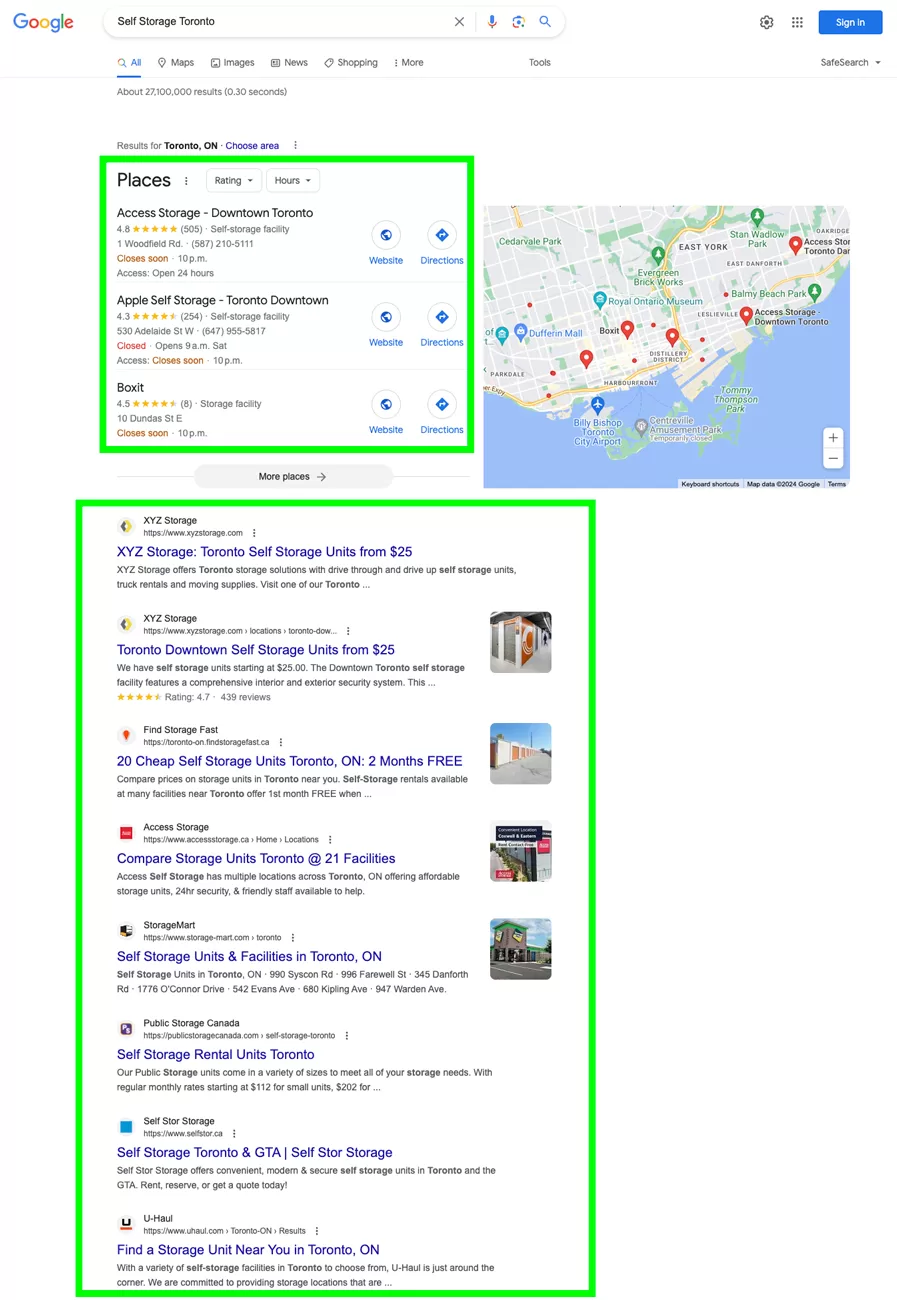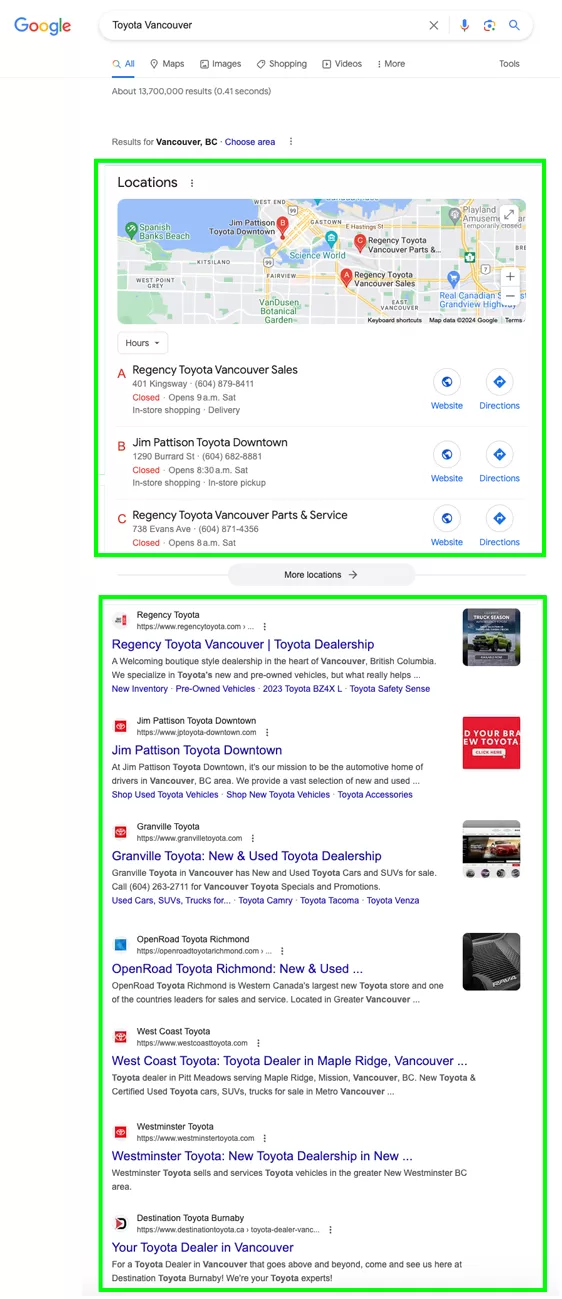Local SEO VS Organic SEO: What's the Difference?

Local SEO and organic SEO play an imperative role in improving a website’s online visibility and driving relevant traffic to your business. Understanding the nuances and differences between these approaches is essential for businesses aiming to establish a robust online presence.
What is Local SEO?
Local SEO involves optimizing your online presence to gain increased visibility in local searches such as “self storage Toronto” or “Toyota Vancouver”, particularly on platforms like Google. When users search for products or services in a specific location, local SEO ensures your business appears in relevant search results.
Local SEO Results for “Self Storage Toronto”

Local SEO Results for “Toyota Vancouver”

Benefits of Local SEO
- Increased Online Visibility: Improve your business ranking in local search results, attracting more local customers to your website or Google Business Page.
- More Relevant Traffic: Higher rankings lead to increased visibility for users actively searching for your products or services.
- Sales Improvement: Approximately 80% of mobile searches convert into sales when local SEO is effectively employed.
- Diversified Traffic: Complementary to paid advertising, local SEO offers an economical and sustainable traffic source.
Local SEO Optimization
- List on Google Business and Apple Maps
- Encourage Customer Reviews: Enhance your online reputation and stand out from competitors.
- Earn Relevant Links: Strengthen your online presence with high-quality, locally relevant backlinks.
- Ensure that your website is mobile-friendly.
- Gain a spot in the Google Local Map Pack.
Organic SEO
Organic SEO focuses on ranking higher in online searches to drive traffic to your website. Unlike local SEO, it is not limited to a specific location and encompasses various search intentions.
Benefits of Organic SEO
- Gain more relevant traffic. By ranking higher on Google search results for relevant search terms, you can attract prospects who are looking for products or services you offer to your website.
- Increase visibility. By appearing higher on search results, you can gain brand awareness in front of prospects who are looking for offerings that your business carries.
Organic SEO Optimization
- Identify target audience: Understand the needs and preferences of your audience.
- Keyword research: Identify keywords used by your target audience in online searches.
- Content creation: Develop topical, relevant, and trustworthy content to position your business as an industry expert.
- Optimize metadata: include relevant keywords in page titles, descriptions, and image titles for better search engine ranking.
- Gain quality links: strengthen your website’s domain authority with relevant and high-quality backlinks. Increasing your website’s domain authority will help Google view your website as a trustworthy website and improve your website’s likelihood of appearing highly on Google search results.
Local SEO vs. Organic SEO
Differences
- User Intent: Local SEO targets users actively seeking local products or services, while organic SEO covers a broader range of search intents.
- SERPs: Local SEO includes the local pack in search engine results, while organic SEO focuses on traditional search engine results.
Content: Local SEO emphasizes location-based information, while organic SEO covers a wider range of topics.
Considerations
- Business Type: Brick-and-mortar stores benefit from local SEO, while businesses without a physical location should focus on traditional SEO.
- Integration: Combining both local and organic SEO strategies maximizes online presence and attracts a diverse range of customers.
Understanding the distinctions between local and organic SEO is crucial for tailoring your digital marketing strategy to meet the specific needs of your business. By integrating these approaches, you can create a comprehensive online presence that attracts both local and global customers.

